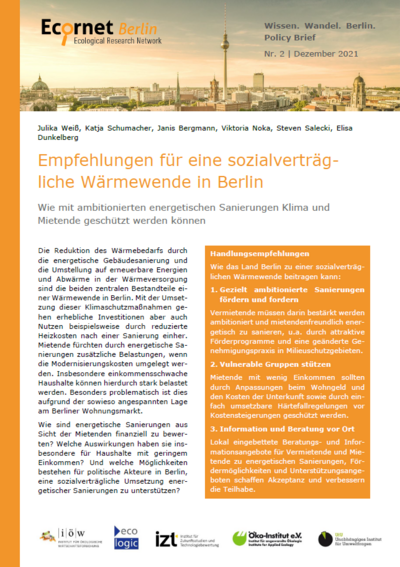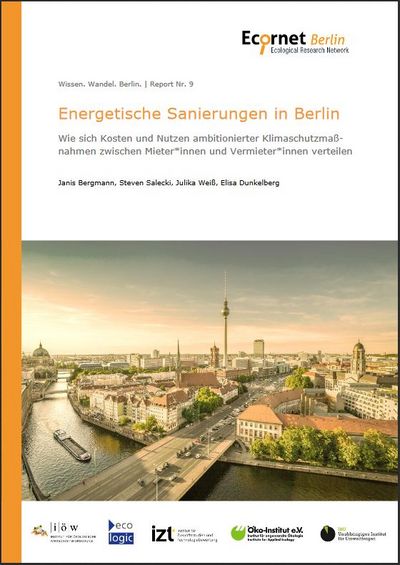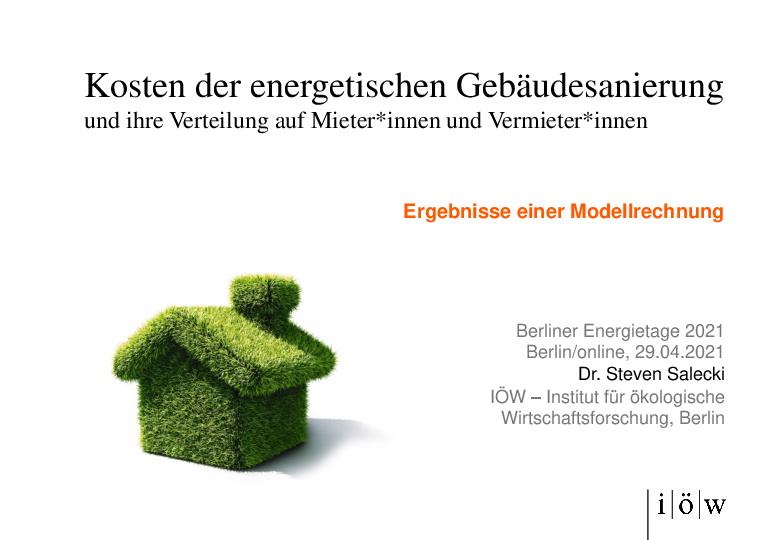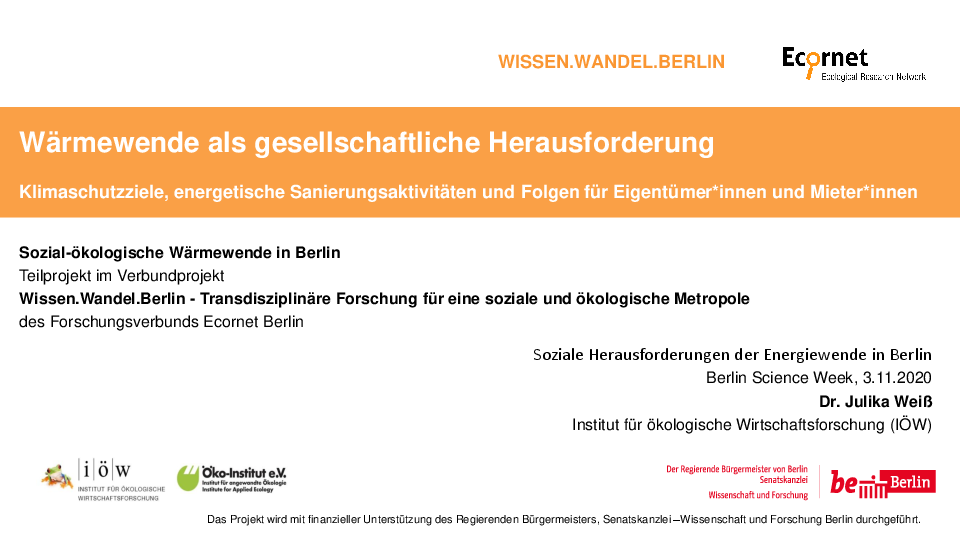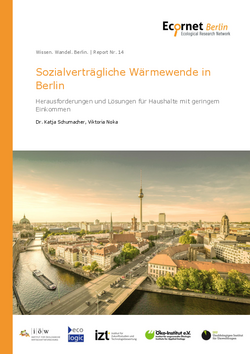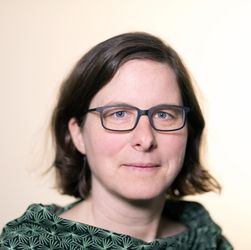Social and environmental heat transition in Berlin A project of the joint program ‘Knowledge. Transformation. Berlin’ by the research partnership Ecornet Berlin
About half of Berlin’s carbon dioxide emissions stem from heating buildings. Reducing the demand for heat through energy-efficient building refurbishment and shifting to renewable energy and waste heat for heating are the two central components of a heat transition in Berlin. The considerable investment required is offset by benefits resulting from, for example, lower heating costs after refurbishment.
Costs and benefits are distributed among various groups of stakeholders such as the public sector, building owners and tenants. At present, there are conflicting opinions among these stakeholders on the question of the social compatibility of energy-saving refurbishment, the design of energy policy regulations in the context of rent increases and the development of energy costs. The impacts on different kinds of households play an important role here. Low-income households and those at risk of energy poverty in particular need to be protected or supported.
The project “Social and environmental heat transition in Berlin” aims to enhance the existing debates in Berlin with scientific analyses, which will be compiled in a transdisciplinary approach working closely together with practitioners. The project examines the effects of existing instruments such as rent caps, community preservation areas (Milieuschutz) and existing support programs and proposes recommendations for action.
The project in detail:
- calculates how the costs and economic benefits of refurbishment and conversion of heating systems are distributed to different stakeholder groups,
- conducts socio-economic analyses on energy poverty and the possible impact of a heat transition on low-income households,
- organizes expert interviews and stakeholder workshops on the impact of the existing instruments as well as on the acceptance of owner and tenant groups of different refurbishment and heating solutions,
- develops recommendations to discuss in an expert workshop together with the above-mentioned stakeholders and the Berlin administration.
The project is part of the joint program “Knowledge. Transformation. Berlin. – Transdisciplinary research for a social and ecological metropolis” of the research partnership Ecornet Berlin and is carried out with the financial support of The Governing Mayor of Berlin, Senate Chancellery – Higher Education and Research.
IÖW Project Team
- Janis Bergmann
- Dr. Elisa Dunkelberg
- Dr. Steven Salecki




